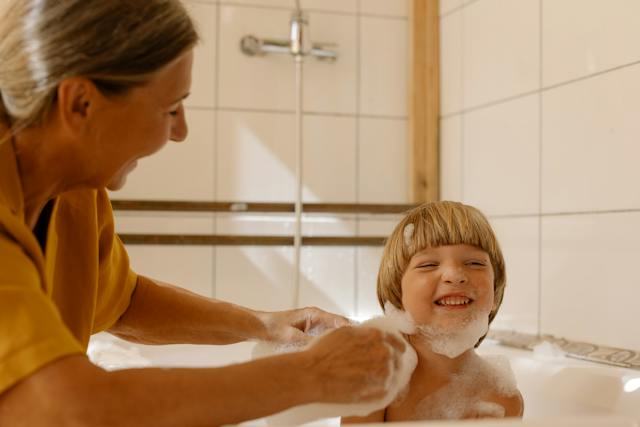As a parent, you want to give your infant the best start in life.
While there are many things that you can do outside of the home to support your infant’s development, there are also many things that you can do right in your own home to help them learn and grow.
Here are some things that you can do at home for better development of your infants.
Provide Sensory Stimulation
Infants learn about the world around them through their senses.
Provide your infant with a variety of sensory experiences, such as different textures, colors, and sounds.
You can do this by introducing them to different toys, letting them feel different fabrics, and playing music for them.
These experiences help to develop their sensory skills and encourage brain development.
Talk to Your Infant
Talking to your infant is one of the most important things that you can do to support their language development.
Speak to your infant in a calm and soothing voice and use simple language. Narrate what you are doing as you go about your day, sing songs, and read books to your infant.
These interactions help to develop their language skills and encourage early communication.
Provide Tummy Time
Tummy time is essential for your infant’s physical development.
It helps to strengthen their neck and upper body muscles, which are important for crawling, sitting, and walking.
Place your infant on their stomach for short periods of time throughout the day and encourage them to lift their head and explore their surroundings.
Establish a Routine
Infants thrive on routine and predictability. Establishing a routine helps your infant to feel secure and comfortable in their environment.
Create a consistent daily routine that includes regular feedings, naps, and playtime.
This routine helps to establish healthy sleep patterns and promotes physical and emotional development.
Provide Positive Reinforcement
Positive reinforcement is an important part of infant development.
When your infant does something that you want them to do, such as reaching for a toy or making eye contact, provide positive feedback.
This feedback can be in the form of a smile, a gentle touch, or a soothing voice.
These positive interactions help to build a strong bond between you and your infant and promote emotional development.
In conclusion,
There are many things that you can do at home to support your infant’s development.
Provide sensory stimulation, talk to your infant, provide tummy time, establish a routine, and provide positive reinforcement.
By doing these things, you will help your infant to grow and develop into a happy, healthy, and well-rounded individual.
![]()












